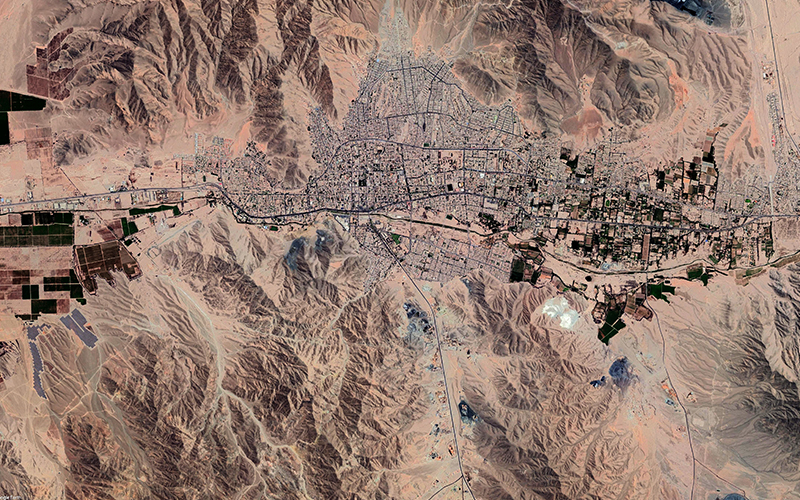DPU Working Paper - No. 203
The production of risk: Mining extractivism and urban risk in Copiapó, northern Chile

26 October 2020
By Armando Caroca Fernández
ISSN 1474-3280
Mining is the main economic activity in Northern Chile. The development of Chilean northern cities such as Copiapó can be largely explained by the key role they play within global circuits of natural resources. While extractive activities respond to global requirements and international forces, their negative environmental outcomes tend to be rooted at a local level, becoming ‘everyday disasters’ for rural and urban communities.
This paper is focused on one of these outcomes, mining tailing deposits. These deposits consist of large accumulations of discarded rock and toxic substances used to concentrate and purify metals, which are many times located near cities. There are more than seven hundred tailings deposits in Chile, and have become one of the main environmental crisis in the country. This paper aims at exploring the ways in which Chilean extractivism, adopted on a regional scale and linked with global circuits of natural resources, produces urban risk on a local scale. Particularly, it explores the socio-spatial expression of mining tailing deposits in the city Copiapó, in the Atacama region. The conceptual framework of the paper is built around two main concepts: ‘risk’, understood as socially produced; and ‘extractivism’, from a political ecology perspective, addressing the specificities of the Chilean case.
The paper examines national, regional, and local policies, maps, and news reports, drawing on an analytical model built upon the ‘pressure and release’ disaster risk framework, with a special focus on those features that increase the overall vulnerability of the population of Copiapó. Three main issues emerge: uncoordinated policies, poor urban management, and issues regarding access to information, risk perception and communication between actors.
Through the analysis it is observed that a generalised scenario of dependency and negotiation, where different actors throughout spatial scales are positively or negatively affected by extractive operations, in cyclic stages of boom and recession. While the region is ‘commodified’, tailing deposits become ‘outsides’ of capital, depleted of all value, and located on the physical edges of the city.
 Close
Close

